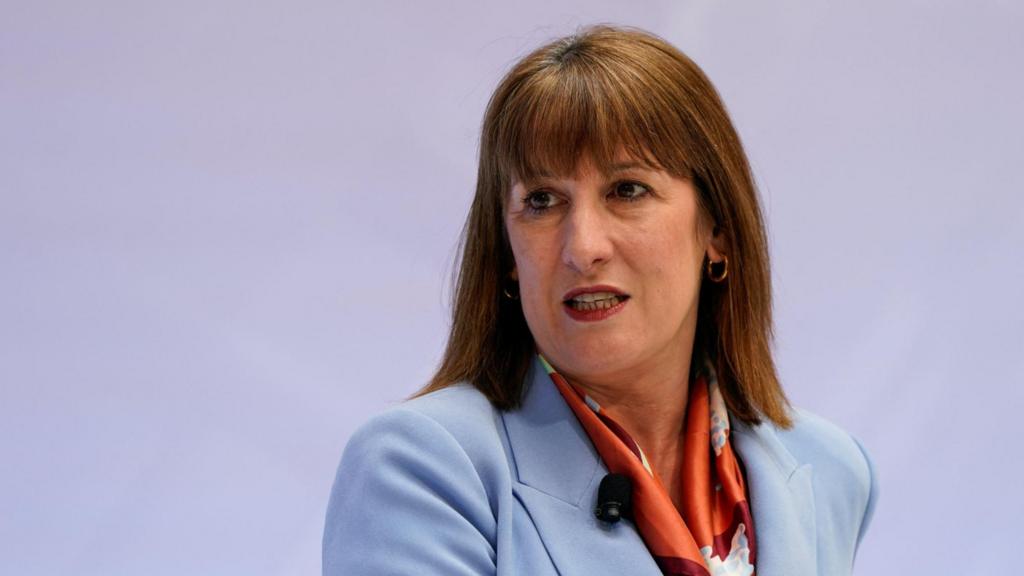The UK’s trade ties with the EU may hold greater significance than its relationship with the US, Chancellor Rachel Reeves has told the BBC.
Despite currently prioritising discussions with Washington, Reeves indicated that strengthening economic links with the EU remains a top objective.
Following her meeting with US Treasury Secretary Scott Bessent on Friday, Reeves posted on social media that both nations seek an agreement “benefiting our national interests”.
Earlier this week, she suggested the UK might cut tariffs on US car imports from 10% to 2.5% as part of broader economic negotiations.
The UK is currently preparing for a May summit with the EU, aimed at “resetting” bilateral relations.
“I understand the emphasis on our US trade discussions, but our relationship with Europe is arguably even more important, given they are our closest neighbours and primary trading partners,” Reeves said to the BBC.
“While I’m in Washington and meeting with Scott Bessent, this week I’ve also held discussions with finance ministers from France, Germany, Spain, Poland, Sweden, and Finland. Rebuilding strong European ties is vital for British jobs and consumers,” she added.
A Downing Street spokesperson described Reeves’ comments as “a factual statement that the EU is our largest trading partner”.
The spokesperson also highlighted previous remarks by Sir Keir Starmer, noting he had cautioned against viewing EU and US trade as “an either/or choice”.
This week, Reeves reiterated that the government is working “flat out” to advance a trade deal with the US.
She advocated for “free and fair” commerce, and expressed a desire to deepen US-UK cooperation, particularly in technology sectors.
Speaking to Sky News, Conservative shadow business secretary Andrew Griffith said his party would “absolutely be seeking to prioritise” an agreement with the US over the EU.
Griffith argued the UK’s existing tariff-free trade with the EU makes the US the “next best option for growth after the chancellor’s economic record”, and urged a US trade deal.
Liberal Democrat Treasury spokesperson Daisy Cooper MP remarked: “The chancellor is right about the EU’s importance, but government efforts so far have been insufficient.”
“This administration has bent over backwards to appeal to Donald Trump while overlooking opportunities for growth through greater European trade,” she claimed.
Commenting on US relations, Reeves stated she “understands what President [Donald] Trump is seeking” with tariffs, ahead of her Washington meetings.
Reeves noted parallels between rising economic concerns in both the US and UK, observing that both governments responded to similar public frustrations.
“We’re all dealing with tariffs, and I appreciate the rationale behind President Trump’s desire to address global imbalances,” she told the BBC.
President Trump has imposed a 25% tariff on all car imports to the US, including those from the UK.
Britain faces a general 10% tariff, and is seeking to negotiate terms with the US administration alongside several other nations, though higher duties are temporarily on hold until July.
There have been positive signals from US officials, with Vice-President JD Vance last week expressing there is a “good chance” for a trade deal with Britain.
Reeves indicated ongoing collaboration with European and Canadian counterparts to remove trade barriers, mentioning the challenging nature of G20 talks this week.
“There are obvious tensions. Market uncertainties impact investment, and we are all mindful of their consequences for the UK economy,” she said.
Watch Faisal’s full interview with Rachel Reeves here.
Sign up for our Politics Essential newsletter for the latest developments in Westminster and beyond.
Bug bounty hunters, who earn rewards for discovering software vulnerabilities, are seeing their work transformed by artificial intelligence.
A proposed new tax will apply to producers of milk-based beverages and dairy alternatives.
Former US border official Tom Homan says some mothers chose to have their citizen children deported alongside them.
President Vladimir Putin has announced a three-day ceasefire in May to coincide with commemorations marking the 80th anniversary of World War Two’s conclusion.
A leading economic forecaster warns that disruption to trade could undermine both business and consumer confidence.

